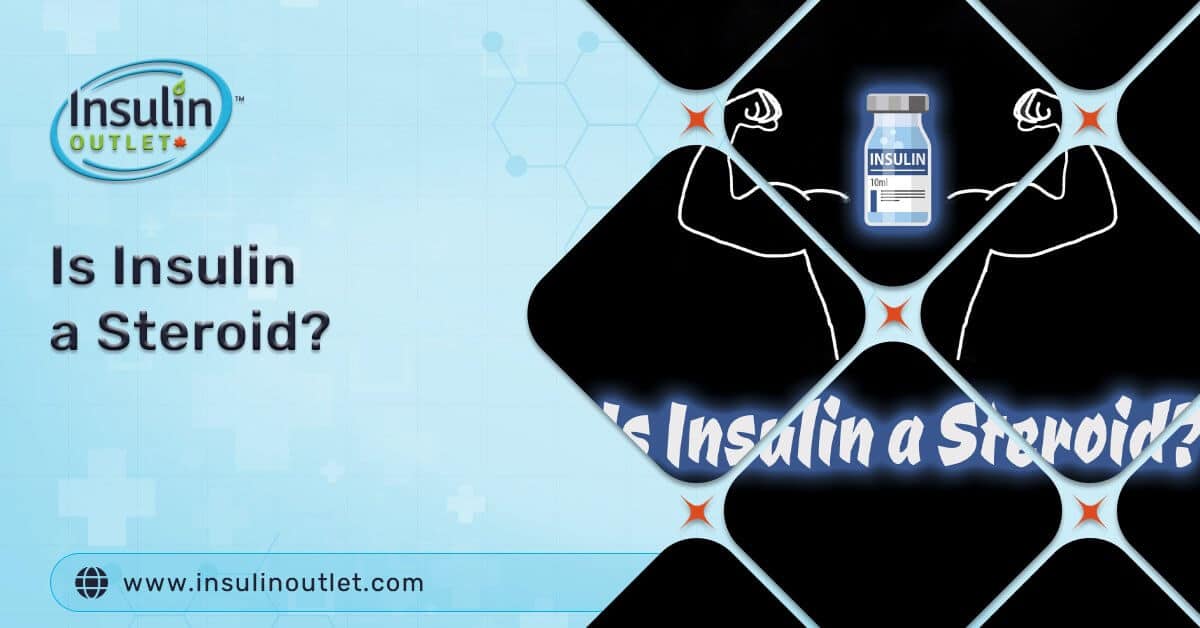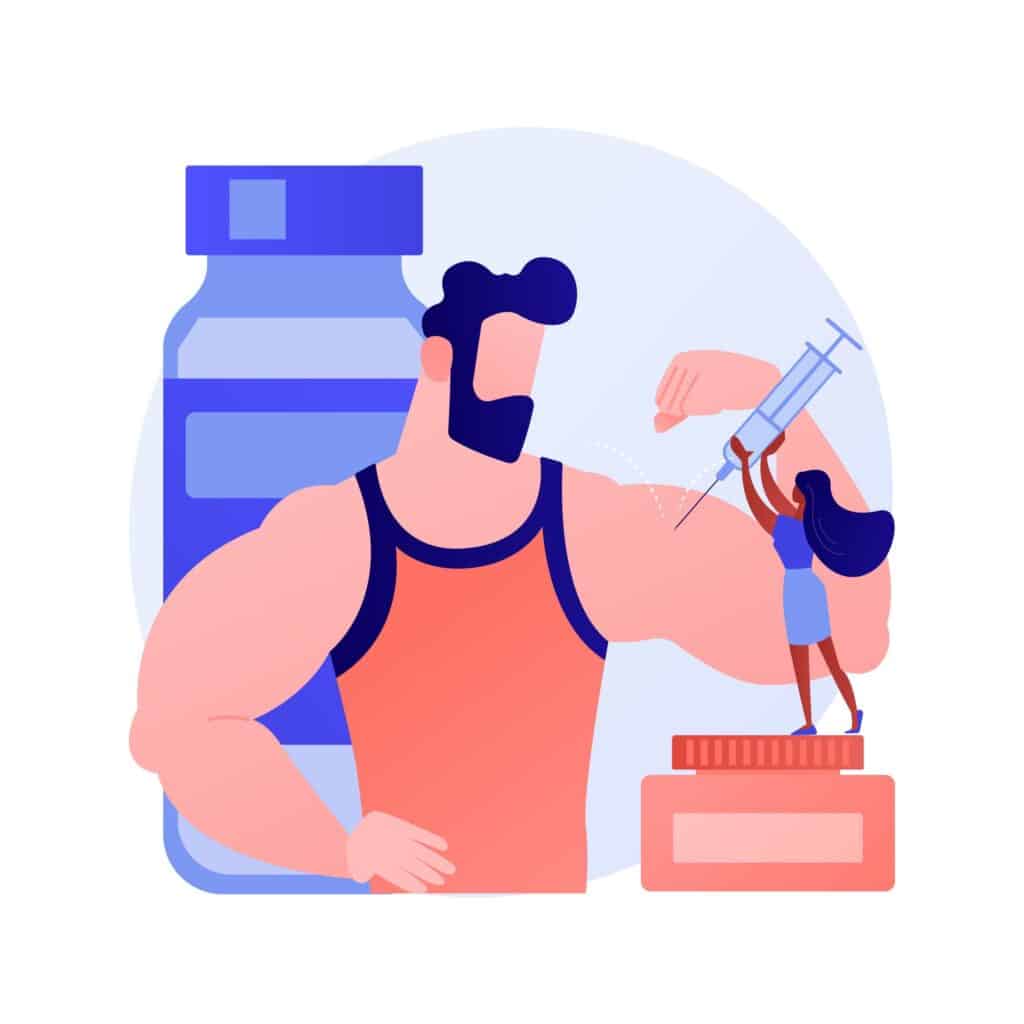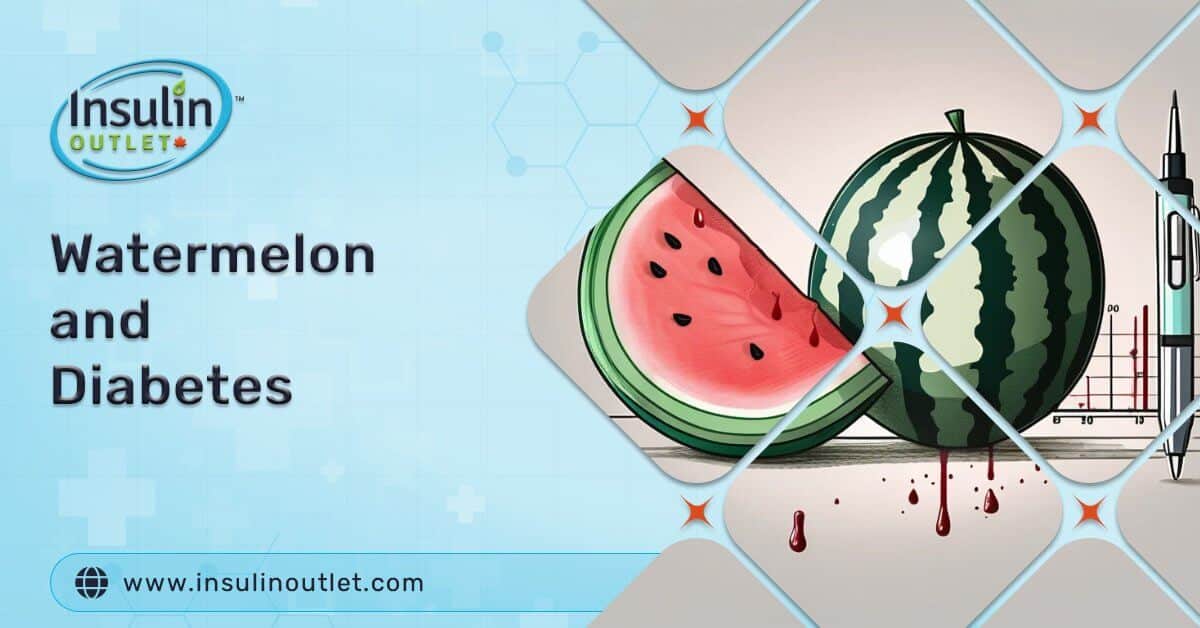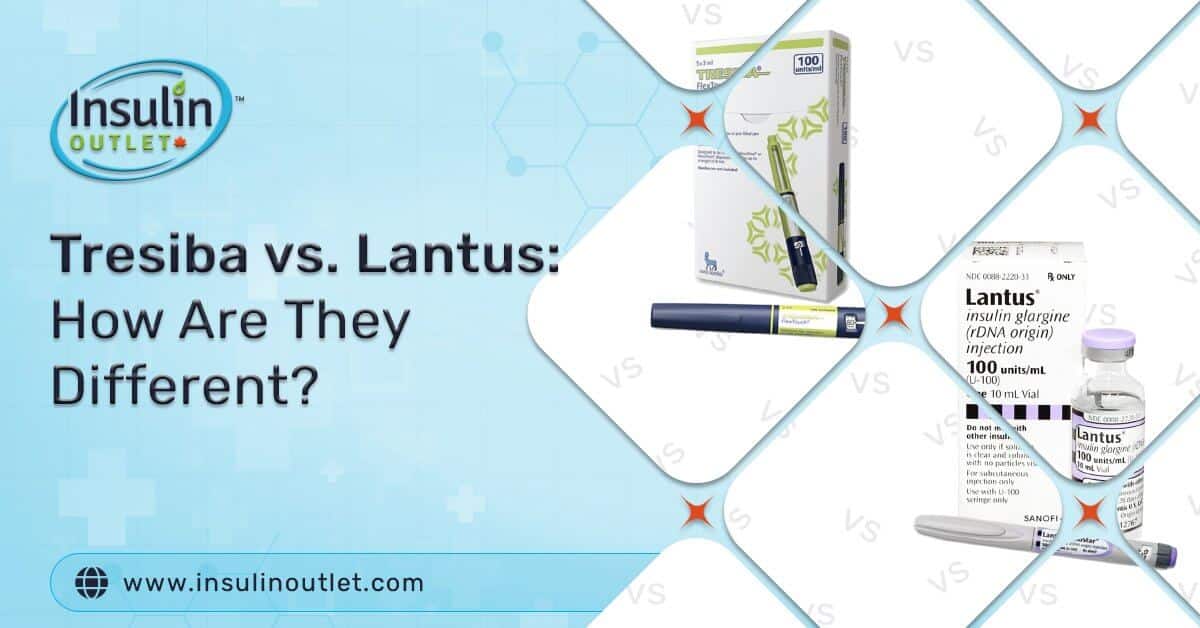
Is insulin a steroid? This is a question circulating forums across the web and has been asked by many diabetics and fitness enthusiasts.
If you’re one of the many people pondering this question, look no further. We will give you the answer and explain why there are mixed answers to this inquiry.
The answer to is no. That is correct; insulin is not a steroid. Insulin instead is a peptide hormone, which is formed of amino acids.
Table Of Contents
ToggleWhat is Insulin?
A primary metabolic process (energy production) is regulated by insulin, which is essential for life. It’s necessary to understand what insulin does and how it affects your body, as it can affect your overall health.
The pancreas produces insulin and is located behind the stomach. Hormones, such as blood sugar control insulin production. An individual with a healthy metabolism creates and releases insulin in a tightly controlled process that allows the body to balance its metabolic needs. By promoting glucose absorption into the liver, skeletal, and fat cells, insulin regulates the body’s metabolism from its food. The glucose serves as energy to these cells or is converted into fat when needed.
So, with this information, you’re probably wondering why people might consider insulin a steroid?
The reason why insulin is often considered a steroid is that steroids chemically are made to resemble hormones that are naturally produced in the body. An example of insulin being called a steroid is the artificial insulin shots people with diabetes inject themselves with.
As we have stated, insulin is a peptide hormone formed of amino acids. On the other hand, steroids are considered to be part of the lipid group of compounds. This makes insulin different from the other hormones produced into steroids for the body.
For diabetic patients, insulin can help their blood sugar levels before and after they eat. Ensure you follow the proper dosage prescribed by their doctor and take any other required medications rescribed to them. A diabetic person can live everyday life without any restrictions if they manager their diabetes correctly. Furthermore, exercise is not just something a healthy person should do, but exercise is essential for people with diabetes. Make sure throughout the day you constantly monitor your blood sugar levels. Also, contact your doctors for any emergencies you may have.
The insulin dose a diabetic takes may be more effective with a proper diet and a good exercise plan, as it replicated the insulin from your body. It also would depend on the type of insulin product the individual uses (depending on their circumstances). For example, an insulin that works after 1.5 hours (isophane) compared to an insulin that is released over 24 hours (glargine), may be delivered to two different diabetics with different lifestyles.
Side Effects
If you follow your doctor’s orders and only use the amount of insulin needed and follow a good and healthy diet while exercising regularly, you would believe that you would not experience any side effects.
This, unfortunately, is false. Even with taking the proper precautions, some side effects could arise.
To be prepared for any side effects is to know what to look for. Here are a few examples of what side effects may occur for someone using insulin:
Common Skin Side Effects
A common side effect many diabetic people develop is problems because they have to pierce their skin to take the insulin shot.
Examples of common skin side effects are redness, itching, irritation, thickening of the skin at the injection site, soreness, dimpling of the skin, to name a few.
Improper Dosage
There are times when a person with diabetes may accidentally use too much insulin. This can also happen by not taking the proper insulin that is assigned by your doctor. For example, taking an insulin degludec instead of a insulin glulisine (or vice versa). When this occurs, these side effects could follow: low blood sugar levels, dizziness, nausea, fatigue, increased hunger and thirst, paleness, headaches, slurred speech, blurred vision, increased palpitations, fluctuations in the mood, anxiety, unconsciousness, seizures, irritability, tingling or numbing, and a loss of balance. If this does happen, please call the poison control helpline.

Weight Gain
Yes, insulin could cause you to gain weight. It also could cause your arms and legs to swell up. The reason why insulin could cause weight gain is that it works to regulate the blood glucose levels in the body properly. This is the function of insulin to absorb glucose in the body’s cells.
The problem occurs when there’s an excess amount of glucose in the body’s cells. This is then turned into fat. Ways to prevent this are to exercise regularly, count your calories, and track your blood sugars.
Allergies
Some diabetic patients have experienced allergies from their insulin, including rashes on their skin, not just at the injection site. It is essential for each diabetic patient to openly discuss any allergies before being prescribed insulin from their doctor. Each insulin product can have different ingredients than the next, which can cause allergic reactions. Be sure to read the ingredients of insulin vials and pens and going over them with your healthcare provider.
Potassium Levels
Insulin intake can disturb your potassium levels. This can cause constipation, muscle cramps, shortness of breath, and weakness. It is well known that insulin stimulates hypokalaemia and transports body potassium into cells, sparing it from excretion through the urine. Insulin also appears to have an anti-natriuretic effect that is enhanced by potassium. Plasma renin and angiotensin II levels increase during insulin-induced hypokalemia, while serum aldosterone concentrations decrease. Renin-angiotensin-aldosterone, in turn, modulates glucose tolerance by modulating plasma potassium levels. This, in turn, stimulates glucose-induced insulin release.
These are the main side effects of taking insulin. If you’re a person who has diabetes, don’t worry.
What Are Steroids?
Since you know what insulin is, let’s go over what steroids are.
It is more precise to say that glucocorticoids are steroids; the term “steroid” is more general and used in popular culture. Anti-inflammatory properties are found in glucocorticoids, which are naturally produced by the kidney’s adrenal glands. Glucocorticoids are also involved in glucose metabolism. Synthetic steroids are also available that work like hormones to reduce inflammation in addition to the steroids the body naturally produces. Prednisone, hydrocortisone, and dexamethasone are generic names for glucocorticoids with systemic effects (also called systemic). Fluticasone, beclomethasone, and budesonide are glucocorticoids inhaled directly into the lungs. Asthma, long-term lung conditions such as Chronic Obstructive Pulmonary Disease (COPD) and other conditions can be treated with inhaled glucocorticoids. In addition to topical glucocorticoids, including hydrocortisone and betamethasone, there are also lotions and creams.
Similar to testosterone, steroids promote muscle growth by acting as synthetic hormones. Anabolic hormones in our bodies help to keep the body muscled and tough. This is why bodybuilders find them crucial to their success. A bodybuilder has to constantly work out while eating strict diets, which can be high in caloric intake during the bulking stage and low during the cutting phase. This is a lot for the body to handle, and with their intense workout routines, it’s not hard to see why they look for that “extra boost” and could turn to insulin. Bodybuilding is incredibly competitive, and contestants do look for any advantage they could get.
Insulin Usage in Bodybuilding
Insulin use can help to maintain the muscles in the body. This is another reason why some may believe that insulin is considered a steroid.
The way insulin works with the body’s muscles is as the following:
- Insulin works side by side with anabolic steroids, such as human growth hormone (HGH) or testosterone, to help with muscle retention.
- Insulin helps to prevent muscle breakdown.
- Insulin promotes nutrient storage.
- Insulin doesn’t directly promote muscle building, but it helps to allow muscle building to take place.
- Insulin prevents or delays the breakdown of protein, fats, and glycogen in the body.
- Insulin helps in muscle protein synthesis.

The fifth point mentioned above is a favorite among many bodybuilders. This is because insulin prevents or delays the breakdown of glycogen. In muscles, glycogen is stored as a source of carbohydrates. Because of this, insulin has become a favorite for bodybuilders to take after a workout. Why is this a favorite for bodybuilders? It’s because when glycogen is delayed, it makes the muscles fuller. So, bodybuilders take insulin after workouts to promote glycogen storage.
One fact about insulin and muscle building is that insulin won’t assist the muscles at all without protein. The fact that insulin, along with protein, has a positive effect on the body’s muscles is the reason why so many bodybuilders now use insulin as a part of their supplement routine.
Many bodybuilders make it a point to use insulin combined with anabolic steroids and growth hormones. This combination, although not the safest, can enhance their overall performance. Please see a doctor before considered any insulin, steroid or growth hormones.
This type of routine can have serious side effects. Too much insulin, steroids and growth hormones (especially in unmonitored amounts) can lower the body’s blood sugar levels beyond their limits. It is essential to note that this can lead to death by poisoning. Always consult your doctor before using insulin.
Conclusion
The common misconception around many conversations today is how insulin is a steroid. This article explained how insulin is not a steroid but competitors may use as a part of their supplements. Although insulin helps with glycogen levels, its primary use is meant for people with diabetes, not bodybuilders who are looking to have any advantage they can get. Although it is true that if you’re a bodybuilder, insulin may help you to gain your muscles. However, it is essential you discuss this route with your doctor and not start using insulin because you read it on an article online.
Share:












